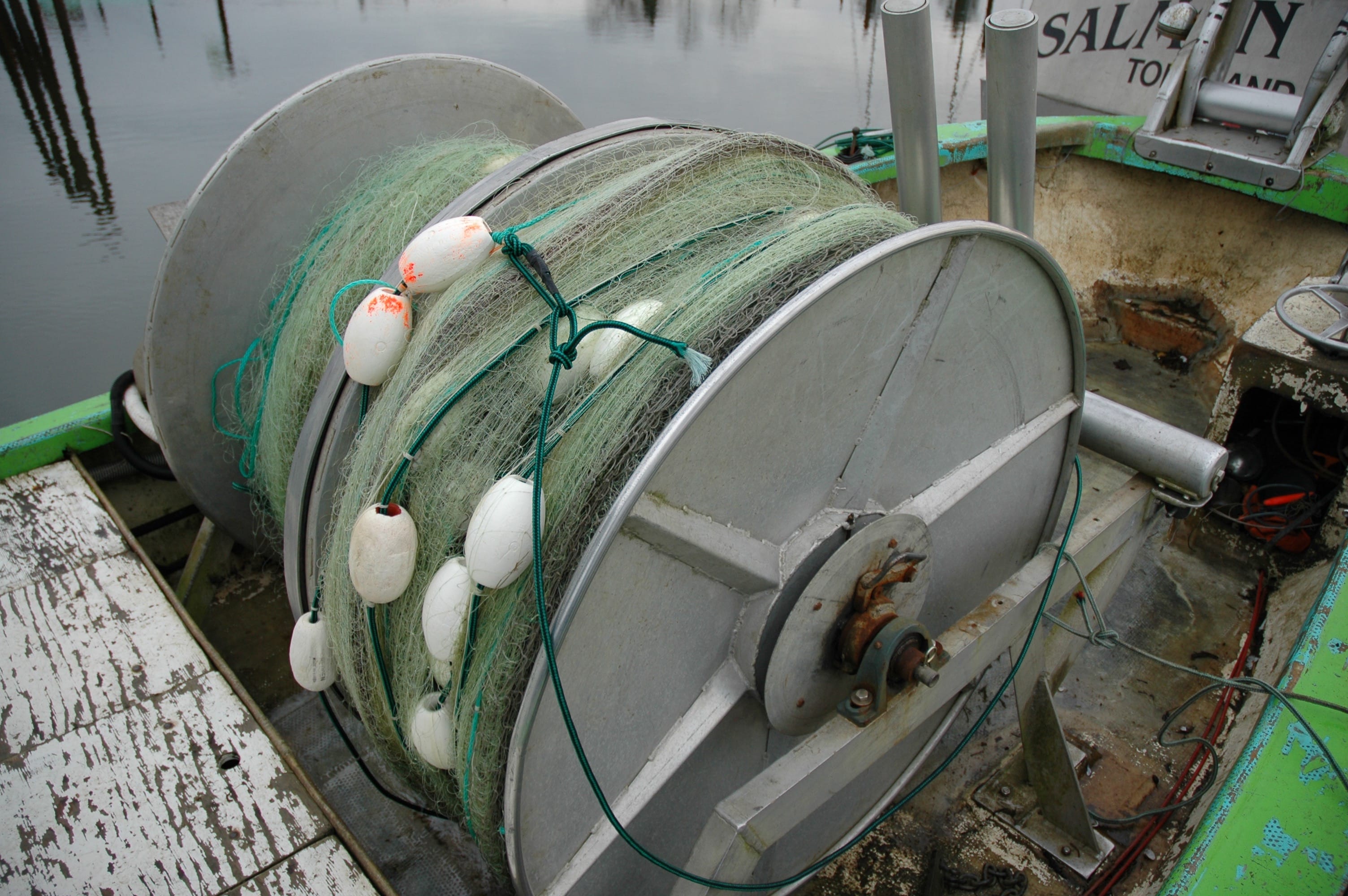Oregon’s Fish and Wildlife Commission took another try Friday at adopting Columbia River salmon management reforms, but it’s still unclear if the policies will satisfy Washington’s commission.
Meeting in Corvallis, the Oregon commission voted 7-0 to:
• Allocate Endangered Species Act impacts of spring chinook salmon 80 percent to sportsmen and 20 percent to commercial fishermen. The commercial allocation first would be used for off-channel areas, but the potential for a tangle-net (small-mesh gillnet) fishery in the main Columbia would remain after a mid-May run-size update. The policy prohibits transfer of unused impacts to sport fishing.
Washington’s policy does not allow a tangle-net fishery for spring chinook in the main Columbia.
• Allocate summer chinook 80 percent to sportsmen and 20 percent to commercial fishermen. However, large-mesh gillnets could not be used. Currently, there is no other commercial method to catch summer chinook, but the 20 percent potential allocation would serve as an incentive to develop new methods.
Until such new methods are developed, the 20 percent share would go toward conservation and not get caught. Unused allocation can not be transferred to sport fishing.
• Allocate fall chinook ESA impacts 70 percent to sport fishermen and 30 percent to the commercials, with 2 percent of the commercial share reserved for seine fisheries or other alternative gears.
Washington wants to allocate fall chinook impacts 75 percent sport and 25 percent commercial in 2017 and 2018, then 80 percent sport-20 percent commercial beginning in 2019.
Gillnetting in the fall is allowed only between Woodland and Beacon Rock.
Washington wants to eliminate gillnetting in favor of alternative methods in the fall beginning in 2019, while Oregon’s action on Friday did not mention ending fall gillnetting.
Reforms adopted by both states in 2012 allocated more chinook salmon to sportsmen in the main Columbia and restricted gillnetting to off-channel sites like Youngs Bay and Tongue Point near Astoria.
The reforms also called for commercial fishing that remained in the main Columbia to be done with live-capture methods — such as purse seines and beach seines — designed to harvest hatchery stocks and release wild fish.
However, testing of beach and purse seines in the main Columbia found much higher mortality rates of released fish than anticipated four years ago and efforts to develop more off-channel fishing sites for the commercials have had mixed results.
The reforms had a four-year transition period with full implementation slated for 2017.
In January, the Oregon commission adopted revised reforms which were more friendly to gillnet fishermen.
Following a backlash from sportsmen, Oregon Gov. Kate Brown sent the Oregon commission a scolding letter that directed the panel adopt a position closer to the details adopted in 2013 and more akin to Washington’s position.
Oregon commission member Greg Wolley of Portland said he got a call from Brown on Thursday. The proposal adopted on Friday meets the spirit of her letter and the compromise Brown wanted, Wolley said.
Brad Smith, chairman of the Washington Fish and Wildlife Commission, sent a letter to Michael Finley, his Oregon counterpart, on Wednesday indicating that Washington felt the plan it adopted in January already was a compromise from the original 2012 agreement.
“I’m really uncomfortable with this,’’ said Oregon commission member Holly Akenson of Enterprise, who added the plan does not do enough for commercial fishermen.
“If Washington can’t meet us here I have no interest in additional negotiation,’’ she said. “For me this is the bottom line.’’
Wolley also said Oregon’s decision is the “greatest compromise I could, personally, make.’’
Bruce Polley of the Coastal Conservation Association-Oregon said the decision “moved the ball,’’ but was not a big win for sportsmen, who will need to continue their activism.
The Washington Fish and Wildlife Commission is meeting Saturday in Olympia, although the Columbia River salmon reforms are not on its agenda.




